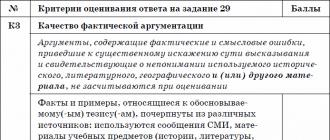Caloric content of boiled beets 100. Calorie content of beets, useful properties. The composition and benefits of beets
Beets, boiled rich in vitamins and minerals such as: vitamin B9 - 20%, potassium - 12.2%, manganese - 16.3%
What is useful Beetroot, boiled
- Vitamin B9 as a coenzyme involved in the metabolism of nucleic and amino acids. Folate deficiency leads to disruption of the synthesis of nucleic acids and protein, resulting in inhibition of cell growth and division, especially in rapidly proliferating tissues: bone marrow, intestinal epithelium, etc. Insufficient folate intake during pregnancy is one of the causes of prematurity, malnutrition, congenital deformities and developmental disorders of the child. A strong relationship was shown between the level of folate, homocysteine and the risk of cardiovascular disease.
- Potassium is the main intracellular ion involved in the regulation of water, acid and electrolyte balance, is involved in the processes of nerve impulses, pressure regulation.
- Manganese participates in the formation of bone and connective tissue, is part of the enzymes involved in the metabolism of amino acids, carbohydrates, catecholamines; necessary for the synthesis of cholesterol and nucleotides. Insufficient consumption is accompanied by growth retardation, disorders in the reproductive system, increased fragility of bone tissue, disorders of carbohydrate and lipid metabolism.
The complete guide to the most useful products you can see in the app
A characteristic feature of beets is that useful substances and compounds are not destroyed during heat treatment. It is thanks to this that the use of boiled beets will bring the same benefits, moreover, many elements will be easier to digest.
Consider chem. the composition of the boiled product, what vitamins it contains, and whether there is any benefit from it, as well as whether red beets are high in calories and how many kcal are in 100 grams of the root crop.
Boiled beets contain the following substances:
- vitamins A, B1, B5, B6, C, E, H and PP;
- cellulose;
- folic acid;
- minerals: potassium, magnesium, zinc, iodine, calcium, phosphorus and sodium;
- choline;
- organic acids (tartaric, lactic, malic, etc.).
Let's talk about the nutritional value and ratio of BJU: how many calories (or kilocalories) and carbohydrates are contained in 100 grams of a boiled product?
The calorie content of water-cooked beets is only 40 kcal per 100 g in addition, the same amount of the finished product contains almost 2 g of protein and over 10 g of carbohydrates.
This means that a dish with boiled beets will be nutritious and balanced.
Beetroot contains almost no fat, and due to its energy value, this product is included in most weight loss meal plans.
What is the benefit of the product for the human body?
The benefits of boiled beets:
- One of the useful properties of the red root crop is its beneficial effect on hematopoietic processes in the human body. This is important for everyone who suffers from anemia or for some reason has lost a lot of blood - for example, for women during heavy menstruation (you can learn about the benefits and harms of beets for a woman's body).
- known fact is that beets are a powerful natural laxative. Therefore, the use of boiled beets is recommended for everyone who suffers from constipation.
- What else and how red beet is useful for the body is its beneficial effect on human digestion - organic acids in its composition help to speed up the processes of metabolism and breakdown of food in the stomach.
- Is it good to eat root vegetables for hypertensive patients? Definitely yes. Boiled beets contain betaine, which can lower blood pressure, as well as fight cholesterol plaques on the walls of blood vessels in people with lipid metabolism disorders.
- Due to the high content of antioxidants, beets are useful for anyone who wants to cleanse the body of harmful accumulations. In conditions of poor ecology and stress, it is also important to remember that boiled beets are able to remove heavy metal salts from the body.
- ? Modern research proves that the use of boiled beets increases potency.
We offer you to watch a video about the benefits of boiled beets for human health:
Harm to health
Is beetroot harmful to the body? The negative impact of the root crop is due to its:
- The content of acids can adversely affect the tissues of the inner surface of the gastrointestinal tract.
- The laxative effect can take a person by surprise, especially if there were no problems with constipation before use.
- Unfortunately, there are a lot of sugars in beets, which means that with certain diets, this root crop is still not suitable for the menu.
Contraindications
The use of boiled beets is contraindicated in cases:
- The high content of acids dictates the need to refrain from eating beets for people with gastritis and other diseases of the stomach and high acidity of its environment.
- With a calcium deficiency, you should not lean on beets, as it tends to lower the level of calcium absorption in the body.
- Boiled beetroot the best choice with diabetes due to the high content of sugars in it.
- The use of beets will bring harm to people who suffer from constant diarrhea and other digestive disorders - the laxative effect will only aggravate the situation.
- Boiled beets are contraindicated for urolithiasis, despite widespread erroneous recommendations about the destruction of kidney stones by eating beets.
How to cook?
Cooking method:
- If you got a fresh root vegetable, wash it thoroughly and do not cut the root and lower part of the leaves from the tops before cooking. In this way, the maximum amount of beet juice is preserved. For beets that have been stored for a long time, it is advisable to remove the tops completely.
- After that, the prepared root vegetables should be put in a cooking pot, poured with cold water and boiled over low heat for about 50-60 minutes after boiling. The cooking time will of course depend on the size of the beets.
- At the end of cooking, the water must be drained, the finished beets must be doused with cold water so that it is easier to clean later.
At the end, I would like to point out that regular consumption of beets in food will definitely have a positive effect on your body. This product is able to remove salts and harmful compounds from the body, is useful for the prevention of cancer, is an indispensable tool for constipation and weight loss.
Familiarize yourself with contraindications and take note of everything now beneficial features boiled beets to incorporate into your daily recipes.
If you find an error, please highlight a piece of text and click Ctrl+Enter.
The product has a rich vitamin and mineral composition, including a lot of fiber, healthy carbohydrates, vitamins B, C, E, PP, phosphorus, calcium, potassium, zinc, iron, folic acid, provitamin A.
The total calorie content of beets with mayonnaise and garlic is 111 kcal. As we can see, the dish is quite light, so it will not harm your figure if you are on a diet.
Calorie boiled beets per 100 grams
Calorie boiled beets per 100 grams 50 kcal. 100 g of the product contains 1.9 g of protein, 0 g of fat, 10.9 g of carbohydrates.
Despite the fact that the boiled vegetable is less saturated with useful substances, it is recommended to eat it by experts in healthy nutrition. This is due to the fact that raw beets are digested much worse than boiled ones.
Beetroot with butter calories
If you love beetroot salad with butter, the calorie content of such a dish will definitely not disappoint you. Cooked with the addition of vegetable oil, beets contain only 102 kcal per 100 grams. In a 100-gram serving of the dish, there are 1.7 g of protein, 5.9 g of fat and 10.7 g of carbohydrates.
Calorie stewed beets
The calorie content of stewed beets is 105 kcal. In 100 g of vegetable 2.6 g of protein, 5.6 g of fat, 12.1 g of carbohydrates. The product is saturated with zinc, iron, potassium, phosphorus, calcium, folic acid, B and C vitamins, provitamin A.
The benefits of beets
The main benefits of beets are as follows:
- thanks to the aminobutyric acids contained in the vegetable, beets are useful for normalizing the functioning of the brain;
- pectins and fiber in the product provide cleansing of the intestines from toxins, salts of heavy metals;
- the useful property of beets to speed up metabolism is known;
- the vegetable is considered an effective means of preventing constipation;
- with regular consumption of beets, blood pressure normalizes;
- confirmed the benefits of beets as a laxative and diuretic, as well as for the prevention of hypertension;
- trace elements contained in beets contribute to the normalization of the hematopoiesis process;
- folic acid in the composition of the product is necessary for pregnant women to form a healthy nervous system fetus;
- vegetable is useful for thyroid diseases;
- low calorie content of fresh, stewed and boiled beets per 100 grams makes the vegetable an indispensable element of the most popular diets.
Beet Harm
Beetroot damage can occur in the following cases:
- overeating of the product in osteoporosis, diabetes mellitus;
- when the product is abused with diarrhea due to the pronounced laxative effect of the product;
- with urolithiasis, since the vegetable contains oxalic acid;
- beets should also be discarded if the acidity of the stomach is increased.
Calories, kcal:
Proteins, g:
Carbohydrates, g:
Beetroot is a herbaceous plant of the family amaranth having one-, two- and perennial representatives. The vegetable has a large maroon root crop of round, flattened or cylindrical shape and large leaves of rich green color with burgundy veins on long fleshy petioles. Known since the days of ancient Babylon, the beetroot is still one of the favorite vegetables, second only to (calorizator) in terms of prevalence. Rome and Byzantium, from where beets came to the territory of modern Russia, almost the entire Mediterranean is considered the birthplace of beets. Interesting fact- initially it was only used for food, it was soaked in and seasoned with hot pepper.
Calorie content of beets
The calorie content of beetroot depends on its variety. The calorie content of "ordinary" table beets averages 43 kcal per 100 grams of product.
Due to its composition, which contains: vitamins, as well as minerals necessary for the human body:, and, boron, and, and, beets are one of the most useful vegetables in the range of commonly available products. Beets are useful as a prophylactic for the occurrence of diseases of the heart and blood vessels, participate in the process of hematopoiesis, and prevent the occurrence of leukemia and anemia. In times of lack of multivitamin preparations, beetroot and its juice were treated for scurvy and beriberi, used as a cleansing and laxative. Fiber and dietary fiber, in sufficient quantities, both in raw and in, work as a general tonic and improve metabolism, beets “cleanse” the liver, kidneys and blood vessels. , diluted with water, treat a runny nose by instilling it into each nostril several times a day.
Finely grated raw beets can relieve inflammation on the skin and small tumors, because it is not for nothing that beets are considered an essential food for cancer patients during the rehabilitation period after chemotherapy and radiation therapy. Beetroot has the ability to lower blood pressure, which is extremely important for people with hypertension.

Beet Harm
It is not recommended to consume beets or significantly reduce the amount of the product for those who are diagnosed with urolithiasis and kidney failure, kidney and bladder stones. Diabetics should not get carried away with the use of beets due to the high content of natural sugars in the vegetable. It is also necessary to remember that beets are an allergen, therefore, it must be introduced into the diet of children gradually.
A mandatory rule for drinking beetroot juice is that it is strictly forbidden to drink it freshly squeezed, this can lead to vasospasm, the juice must be put in the refrigerator for several hours, then drunk in pure form, or mixed with , or .
Types of beets
Beetroot has several varieties:
- Feed - has the largest root crops, is used for livestock feed;
- Sugar - a white elongated root crop, cultivated to produce sugar;
- Dining room - well-known cultivated beets, which are eaten;
- Leafy - has juicy and crispy leaves that are eaten both raw and cooked.
Table beet varieties
All varieties of beets are divided into early, mid-season and late, which are especially suitable for long-term storage. The best early varieties for the middle lane are: Bordeaux, Barguzin, Egyptian flat, Cold-resistant, Red ball. Of the mid-season, we single out: Bona, Detroit, Bohemia, Mulatto and Incomparable. Late common varieties: Cylinder and Renova.

When buying root crops, you need to pay attention to the smoothness and integrity of the surface of the root crop - potholes, growths, bumps or traces of decay should be the reason for refusing to purchase. Beets collected in your own garden on a dry day should be dried, spreading it in one layer in a dry room or under a canopy, cut off the tops, leaving 1-2 cm of petioles and stored in a cellar or on a balcony, placing them in boxes with slightly damp sand to avoid drying out (calorizer). A useful tip is to use large root crops as quickly as possible, they do not have the same keeping quality as small ones.
Beets in weight loss
Beets, having a mild laxative effect, are an indispensable product for anyone who is watching their weight or is going to lose weight. Unloading beet days, or boiled beets with several times a week as an afternoon snack, not only normalize the activity of the digestive tract and contribute to weight loss, but also cheer you up.
Beets in cooking
Beetroot is a versatile product, it is boiled, baked, stewed, salted, marinated and used raw, it is the basis of real borscht, beetroot and many other soups. During heat treatment, the product practically does not lose its beneficial properties, so boiled beets are used in salads and snacks, as a decoration for dishes or as an independent meal.
You can learn more about beets, its types, benefits and harms from the video clip of the TV show “About the Most Important Thing”.
Especially for
Copying this article in whole or in part is prohibited.
Beetroot is a food that is the basis of many main dishes, salads and snacks. But most importantly, the calorie content of boiled beets allows you to use it almost unlimitedly. After all, this is one of the few vegetables that can be safely included in the diet.
Also in Ancient Greece beetroot was considered a valuable product and was even brought as a gift to the god Apollo. And in India, the roots of this vegetable were used to prepare medicinal potions. Today, the use of beets is a way not only to save the figure from extra pounds, but also a root crop that will help become part of a healing diet.
You can consume beets in any quantity and at any time of the day, because 100 grams of a raw vegetable contains only 12 calories. Boiled beets also have a low energy value - 100 grams will give the body only 45 kcal.
One eaten salad will enrich you with vitamins and certainly will not harm your figure. Of course, constantly eating a root crop in raw or boiled form is boring. You will definitely want to add something to the dish.
In this case, the calorie content per 100 grams will differ:
- Puree from this vegetable will contain 70 kcal.
- If boiled beets are mixed with potatoes, the energy value will increase to 90.
- A root crop with the addition of cheese will contain 162 kcal.
- Stewed beets have an indicator of 76.
- Vegetable caviar from a vegetable with the addition of onions, carrots and sunflower oil will contain 87 kcal.
The energy value of the dish was compiled taking into account the fact that boiled beets are used. If you cook a salad with potatoes or season a raw root vegetable with butter and cheese, the calorie content will not exceed 40-50. True, it will be much tastier to eat 100 grams of a boiled vegetable than, albeit low-calorie, but raw.
Different cooking methods - the same amount of vitamins
 What is amazing about this root crop is the ability to retain its vitamins during heat treatment. Beets are rich in B vitamins and mineral salts, which do not disappear from the product when heated.
What is amazing about this root crop is the ability to retain its vitamins during heat treatment. Beets are rich in B vitamins and mineral salts, which do not disappear from the product when heated.
The most important wealth of the product is betaine, a biologically active substance that is responsible for fat metabolism. The use of the product will prevent the development of obesity and lower blood pressure - and all this will be ensured by the presence of betaine. So, eating even 100 grams of a root crop, you minimize the risk of developing atherosclerosis and obesity.
Also, the vegetable is rich in such substances:
- Pectin, an element that will protect the body from decay products and the effects of toxins.
- Vitamin B9, which is responsible for the production of hemoglobin and lowers the risk of developing heart disease.
- Tartaric, lactic, citric and oxalic acid - these substances help food to be better digested, which means that the vegetable improves the digestion process.
To preserve the maximum amount of vitamins, it is best to boil the vegetable in the peel and do not cut the roots. Also, do not add salt or other spices when cooking. So you will be sure that 100 grams of the product will be both the most useful and low-calorie.
To refrain from excessive consumption of the root crop is for those who suffer from diabetes. You know that the product contains a lot of sugar. It is also necessary to refrain from suffering from kidney diseases or urolithiasis. In this case, it is better to use the root crop as a healthy supplement, for example, cook beetroot or vegetable stew once a week.





